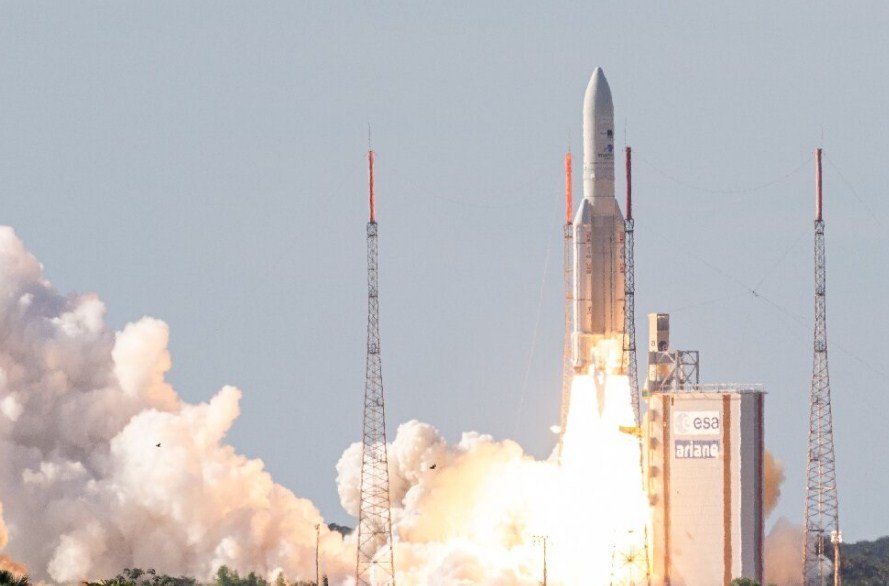Europe is hosting a two-day summit on space policy and competitiveness, with the aim of boosting its role in the emerging space economy. However, the continent faces several challenges, such as delays in its flagship rocket project, competition from the US and China, and uncertainty over its participation in future exploration missions.
Ariane 6 rocket faces funding and technical issues
One of the main topics on the agenda of the summit, which is taking place in Seville, Spain, on Monday and Tuesday, is the funding and development of the Ariane 6 rocket. The Ariane 6 is Europe’s next-generation launcher, designed to compete with the reusable rockets of SpaceX, the company founded by billionaire Elon Musk.
The Ariane 6 was originally scheduled to have its maiden flight in 2020, but it has been delayed by four years due to technical problems, cost overruns, and the impact of the COVID-19 pandemic. According to French business newspaper La Tribune, the project faces a shortfall of 350 million euros, which France, where the manufacturer ArianeGroup is based, wants to cover with extra funding from the European Space Agency (ESA).
However, Germany and Italy, the other two major contributors to the project, have different priorities. Germany wants to support its own emerging launch sector, while Italy wants to protect its smaller Vega-C rocket and invest more in exploration programmes. The three countries will have to find a compromise on the budget and the strategy for the Ariane 6, which is expected to be operational by 2024.
Europe aims to be a leader in climate observation and navigation
Despite the difficulties in the launcher sector, Europe has achieved significant successes in other areas of space activity, such as climate observation and navigation. The ESA and the European Union (EU) have jointly developed the Copernicus programme, which consists of a network of satellites that monitor the Earth’s environment and provide data for various applications, such as disaster management, agriculture, and security.
The Copernicus programme is the largest of its kind in the world, and it has made Europe a leader in the field of Earth observation. The ESA and the EU are also planning to launch new satellites to enhance the programme’s capabilities and to address the challenges posed by climate change, which is one of the main themes of the summit.
Another flagship programme of Europe is Galileo, which is a global navigation satellite system that provides positioning, navigation, and timing services. Galileo is an alternative to the US GPS and the Russian GLONASS, and it offers more accuracy and reliability. Galileo is also a strategic asset for Europe, as it enhances its autonomy and security in the space domain.
Europe seeks a new role in exploration and cooperation
The summit will also discuss the future of Europe’s role in exploration and cooperation, especially in the context of the new space race between the US and China. The US has recently announced its plans to return to the Moon by 2024 and to send humans to Mars by the 2030s, while China has successfully landed a rover on Mars and is building its own space station.
Europe has been a partner of the US in the International Space Station (ISS) and in the Artemis programme, which aims to establish a sustainable presence on the Moon. However, Europe’s participation in these projects is not guaranteed, as the US has not yet formally invited its allies to join the lunar mission. Europe also faces competition from other countries, such as Japan and Canada, which have expressed their interest in collaborating with the US.
On the other hand, Europe has also maintained a dialogue with China, which has been excluded from the ISS and the Artemis programme due to US legislation. Europe and China have cooperated on scientific missions, such as the Chang’e-4 lunar probe and the SMILE solar wind mission. However, Europe has also expressed concerns about China’s lack of transparency and adherence to international norms in space.
The summit will have to decide how Europe can balance its interests and values in the space arena, and how it can contribute to the peaceful and sustainable use of space for the benefit of humanity.

